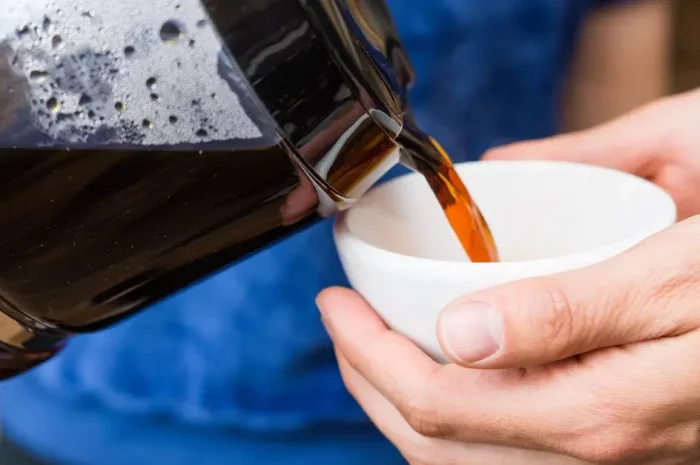Type 2 diabetes is a chronic condition characterized by insulin resistance and elevated blood sugar levels. Managing this condition involves a multifaceted approach including medication, dietary changes, physical activity, and lifestyle modifications. Among the various lifestyle considerations, the consumption of alcohol poses unique challenges and potential risks for individuals with type 2 diabetes. Understanding which alcoholic beverages are safer and how they can be incorporated into a balanced lifestyle is crucial for maintaining optimal health. This comprehensive guide explores the best alcoholic drink choices for individuals with type 2 diabetes, providing insights into their effects on blood sugar, potential benefits, and guidelines for moderate consumption.
Understanding Alcohol and Its Impact on Blood Sugar
Alcohol Metabolism and Blood Sugar
When consumed, alcohol is absorbed rapidly into the bloodstream and metabolized primarily in the liver. This process can significantly impact blood sugar levels. Alcohol consumption can initially cause a rise in blood sugar due to the carbohydrate content of certain beverages. However, over time, alcohol inhibits gluconeogenesis—the liver’s production of glucose—leading to a potential drop in blood sugar levels. This dual effect makes managing alcohol intake particularly important for individuals with diabetes.
Hypoglycemia and Alcohol
One of the primary concerns for people with type 2 diabetes who consume alcohol is hypoglycemia, especially if they are on insulin or certain oral hypoglycemic agents. Hypoglycemia occurs when blood sugar levels fall below normal, which can lead to symptoms such as dizziness, confusion, and even loss of consciousness. Since alcohol can mask these symptoms, it’s crucial for individuals with diabetes to monitor their blood sugar levels closely and be aware of the signs of hypoglycemia.
Hyperglycemia and Alcohol
Conversely, some alcoholic beverages, especially those with high sugar content like certain cocktails and liqueurs, can lead to hyperglycemia—a condition where blood sugar levels become excessively high. Persistent hyperglycemia can cause long-term damage to organs and tissues, exacerbating the complications associated with diabetes.
Alcoholic Beverage Choices for Type 2 Diabetes
Low-Carbohydrate Options
Wine
Red and white wines are often considered better choices for individuals with type 2 diabetes due to their relatively low carbohydrate content. Dry wines, in particular, have minimal residual sugar, making them less likely to cause significant spikes in blood sugar levels. Additionally, red wine contains polyphenols, which have been shown to improve insulin sensitivity and have antioxidant properties that may benefit heart health.
Spirits
Distilled spirits such as vodka, gin, whiskey, rum, and tequila contain zero carbohydrates and do not raise blood sugar levels when consumed in moderation. However, it’s essential to be cautious about mixers. Many mixers, such as soda, tonic water, and fruit juices, contain high amounts of sugar. Opting for sugar-free or diet mixers can mitigate this risk.
Light Beer
Beer generally contains more carbohydrates than wine and spirits, but light beer is a lower-carbohydrate option that can be a suitable choice for individuals with diabetes. Light beers typically contain fewer carbohydrates and calories than regular beers, making them a better option for maintaining blood sugar control.
Moderate-Carbohydrate Options
Standard Beer
While standard beer contains more carbohydrates than light beer, moderate consumption can be integrated into a diabetes-friendly lifestyle with careful planning. Portion control and monitoring of blood sugar levels are key to ensuring that beer does not adversely affect glucose management.
Champagne and Sparkling Wine
Champagne and other sparkling wines vary in their carbohydrate content, with brut varieties typically containing fewer sugars compared to sweeter versions like demi-sec or doux. Choosing drier options can help manage carbohydrate intake and blood sugar levels.
Guidelines for Safe Alcohol Consumption
Recommendations for Moderate Drinking
Moderation is crucial when it comes to alcohol consumption for individuals with type 2 diabetes. General guidelines recommend that women limit their intake to one drink per day and men to two drinks per day. One standard drink is defined as:
- 5 ounces of wine
- 12 ounces of beer
- 1.5 ounces of distilled spirits
Eating While Drinking
Consuming alcohol with food can slow the absorption of alcohol and reduce the risk of hypoglycemia. It is particularly beneficial to pair alcohol with meals that contain carbohydrates, protein, and fat, as this combination can help stabilize blood sugar levels.
Monitoring Blood Sugar
Frequent monitoring of blood sugar levels before, during, and after drinking can help individuals with diabetes understand how different types of alcohol affect their glucose control. This practice enables better decision-making and management of blood sugar levels.
Avoiding Sweet Mixers
When consuming spirits, it’s essential to avoid mixers with high sugar content. Diet sodas, club soda, and water with a splash of lime or lemon are excellent alternatives that do not contribute additional carbohydrates.
Staying Hydrated
Alcohol can cause dehydration, which can complicate blood sugar management. Drinking plenty of water before, during, and after consuming alcohol can help maintain hydration and support overall health.
Recognizing Hypoglycemia Symptoms
It’s important for individuals with diabetes to recognize the symptoms of hypoglycemia, which can include shakiness, sweating, confusion, and dizziness. Having a plan to treat hypoglycemia, such as carrying glucose tablets or a sugary snack, is essential when consuming alcohol.
Potential Benefits of Moderate Alcohol Consumption
Cardiovascular Health
Moderate alcohol consumption has been associated with certain cardiovascular benefits, including increased levels of high-density lipoprotein (HDL) cholesterol and reduced risk of heart disease. Since individuals with type 2 diabetes are at a higher risk for cardiovascular complications, these potential benefits are noteworthy.
Insulin Sensitivity
Some studies suggest that moderate alcohol consumption can improve insulin sensitivity. Improved insulin sensitivity means that the body can use insulin more effectively, which can help manage blood sugar levels more efficiently.
Social and Psychological Well-being
Alcohol consumption often occurs in social settings and can contribute to a sense of relaxation and enjoyment. For individuals with diabetes, engaging in social activities and maintaining a positive outlook is crucial for overall well-being and quality of life.
Risks Associated with Alcohol Consumption in Diabetes
Hypoglycemia Unawareness
Frequent alcohol consumption can lead to hypoglycemia unawareness, where an individual becomes less sensitive to the symptoms of low blood sugar. This condition can be dangerous, as it increases the risk of severe hypoglycemia without the individual being aware of it.
Liver Disease
Chronic alcohol consumption can lead to liver disease, which is particularly concerning for individuals with diabetes, as the liver plays a crucial role in glucose regulation. Fatty liver disease and cirrhosis are potential complications that can arise from excessive alcohol intake.
Weight Gain
Alcohol contains empty calories that can contribute to weight gain, a significant risk factor for worsening insulin resistance and complicating diabetes management. Monitoring caloric intake and maintaining a healthy weight are essential components of diabetes care.
Medication Interactions
Alcohol can interact with certain diabetes medications, potentially enhancing their effects and leading to adverse outcomes. Consulting with a healthcare provider about the safety of alcohol consumption in conjunction with prescribed medications is crucial.
Individualized Approach to Alcohol Consumption
Personal Health Status
Each individual’s health status, including the presence of complications such as neuropathy, nephropathy, or cardiovascular disease, should be considered when determining the safety and appropriateness of alcohol consumption. Those with advanced diabetes-related complications may need to avoid alcohol entirely.
Medication Regimen
The type of medication an individual with diabetes is taking can influence the safety of alcohol consumption. Insulin and sulfonylureas, for example, increase the risk of hypoglycemia when combined with alcohol. It is important to discuss alcohol use with a healthcare provider to understand the potential interactions and risks.
Lifestyle and Diet
An individual’s overall lifestyle and diet play a significant role in managing diabetes. Incorporating alcohol into a balanced diet that prioritizes low-glycemic index foods, regular physical activity, and adequate hydration is essential for maintaining optimal blood sugar control.
Regular Consultations with Healthcare Providers
Regular check-ups with healthcare providers can help individuals with diabetes make informed decisions about alcohol consumption. These consultations provide an opportunity to discuss any concerns, adjust medications if necessary, and receive personalized advice based on the latest clinical guidelines and individual health status.
See also:What Is The Latest Drug For Diabetes?
Conclusion
For individuals with type 2 diabetes, choosing the best alcoholic drink involves careful consideration of the type of beverage, its carbohydrate content, and its potential effects on blood sugar levels. Low-carbohydrate options such as dry wines, distilled spirits with sugar-free mixers, and light beer are generally better choices. Moderation is key, and consuming alcohol with food, monitoring blood sugar levels, and staying hydrated are important practices to minimize risks. While moderate alcohol consumption may offer certain benefits, such as improved cardiovascular health and insulin sensitivity, it also poses risks that must be managed thoughtfully.
Ultimately, the decision to consume alcohol should be made on an individual basis, in consultation with healthcare providers, taking into account personal health status, medication regimen, and lifestyle. By following these guidelines and remaining vigilant about blood sugar management, individuals with type 2 diabetes can enjoy alcohol responsibly and maintain their overall health and well-being.
Related topics:
What Is The Most Dangerous Type Of Diabetes


























